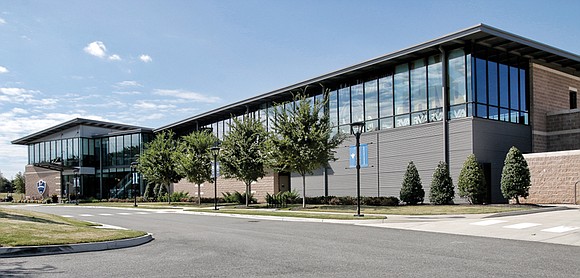Officials mum on future of training camp
Jeremy M. Lazarus | 7/26/2018, 6 a.m.

Will Washington’s pro football team hold a summer training camp in Richmond after 2020?
That question is still unanswered as the NFL team returns to Virginia’s capital for the sixth season Thursday to begin a 19-day stay that will be capped by a youth football program on Tuesday, Aug. 14.
Top officials in City Hall said Monday no new deal has been reached that would keep the team coming back after 2020, but talks with the team are continuing.
The team agreed to hold its training camp in Richmond for eight seasons; its first visit was in 2013.
“There was no requirement that a new deal be reached this month, as has been reported,” one key official said. “The team and the city only were required to hold a meeting before the end of this month, and that requirement was met. At this point, negotiations are ongoing.”
Publicly, there has been no word from the football team, Mayor Levar M. Stoney or the city’s Economic Development Authority, the city’s development arm that owns the West Leigh Street training camp that doubles as a Bon Secours health and wellness center when the team is not in town and also serves as a year-round event space.
Mayor Stoney repeatedly has said that any new lease inked between the EDA and the team would eliminate a requirement to pay the team $500,000 a year in cash or in-kind services for coming to Richmond. That deal was put in place in 2013 after City Council gave the EDA authority to build the training camp in a partnership with Bon Secours, which has naming rights.
In the spring, Richmond City Council passed a resolution calling on Mayor Stoney and the EDA to reject any deal that would continue to put Richmond on the hook for any of the team’s expenses.
However, because of the EDA’s ownership, City Council will not have any role in the creation of a new lease deal with the team. The council appoints EDA members, but the EDA does not report to the council. It was created by state law to give localities more flexibility to make deals and enables the administration to avoid complying with laws governing procurement and other aspects of development. The EDA is staffed by the city’s Department of Economic Development.
Still, the requirement that the team receive $500,000 a year has made it virtually impossible for the EDA to cover the cost of the building’s operations and the repayment of the $10 million the city loaned the EDA to construct the building in 2013.
Earlier this year, a reluctant City Council agreed to allow the city to take over the remaining $8.5 million debt for the training camp’s construction from the EDA. As a result, city taxpayers are expected to spend $750,000 a year for the next 15 years to repay that debt.
Team owner Dan Snyder and team president Bruce Allen also have declined to discuss the team’s future in Richmond.
However, there have been no reports of the team exploring other options for a training camp.
Before coming to Richmond, the team had held training camps at Frostburg State University in Maryland, at Dickinson College in Pennsylvania and on the campus of its Northern Virginia headquarters in Loudoun County.
If the team wants to stay, Richmond may be in a better negotiating position than in 2013, given the decline in public interest in the training camp.
During the past three years, the number of people coming to see the team in Richmond has dropped off sharply from the big crowds of the first two years.
Few food vendors are operating stands after finding sales were too low to justify the $2,500 license fee. Area hotels and restaurants report seeing little impact from visitors coming to see the team, whose arrival was touted as a development deal that would drive new business to such venues and generate new sales tax revenue for the city.
Few of the original expectations have come to fruition, including a boost in real estate tax revenue that was supposed to come from developments that Bon Secours promised to undertake for being involved in the training camp.
Six years later, Bon Secours has yet to build a promised new medical office building next door to Richmond Community Hospital that it owns and operates in the East End. Bon Secours has done other things, such as providing grants to help business start-ups on land near the hospital, building a health and wellness center and participating in development of new and renovated homes near the hospital.
And Bon Secours’ agreement to convert the former Westhampton School building in the West End into a new home for its nursing college also has evaporated after the nonprofit health care company found it more costly than anticipated.
Monday night, a divided City Council voted 5-4 to rezone the school property at Patterson and Libbie avenues at Bon Secours’ request, clearing the way for Bon Secours to pursue plans to develop a new medical office building at the site and to arrange for another developer to tackle redevelopment of the landmark school building that opened in 1917.






